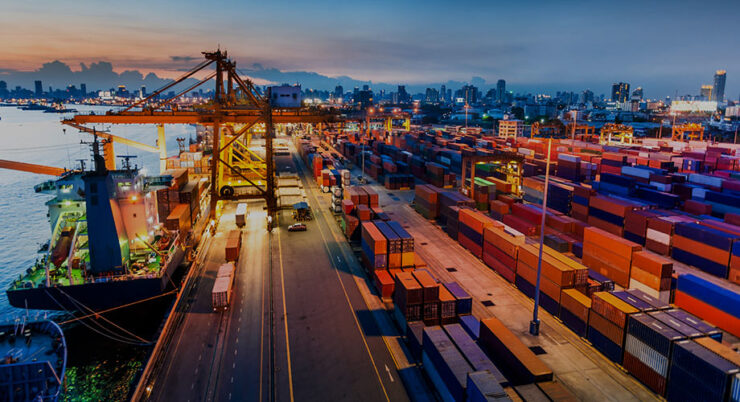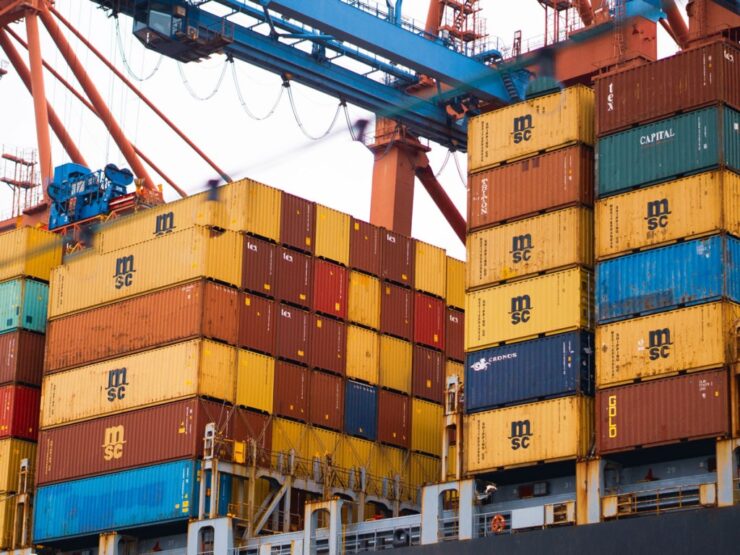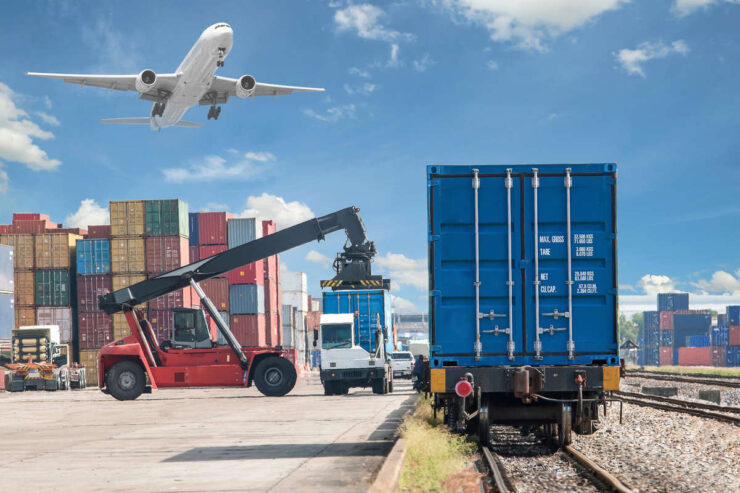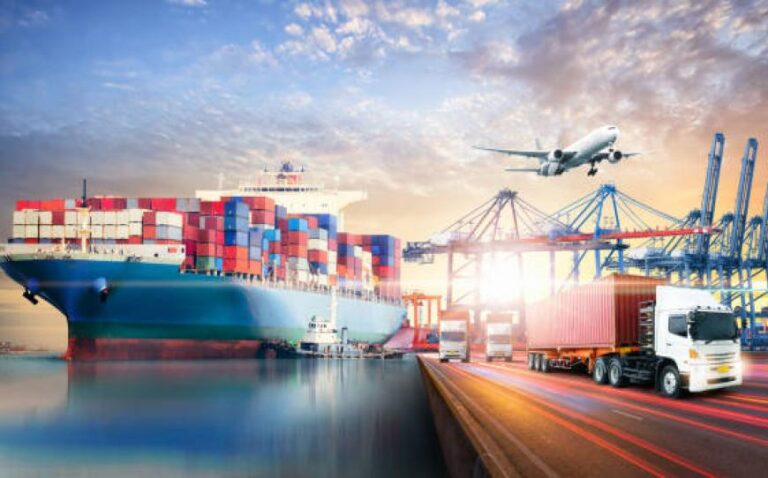In today’s globalized world, business success often hinges on efficient international transport and logistics. However, such operations present a unique set of risks, from fluctuating regulatory environments to unpredictable disruptions. To navigate these complexities, businesses must adopt comprehensive risk management strategies. This article highlights key best practices that help mitigate risks in international transport.
Hiring a Reliable Logistics Company

One crucial way of managing risk in international transport is by entrusting operations to a reputable logistics company. Such companies possess the necessary experience, resources, and expertise to navigate the complex terrain of international shipping. Not all logistics providers are created equal, so finding one that aligns with your business needs and values is vital.
Look for a logistics partner such as Qube Cargo that demonstrates transparency, accountability, and reliability. Research their track records, scrutinize their customer reviews, and request case studies. A provider with a proven track record in handling goods similar to yours and serving markets you operate in can offer invaluable insights and guidance.
Consider a logistics company’s scalability and technological advancements as well. As your business grows and evolves, so will your logistics needs. A company with scalable solutions and a solid tech infrastructure can ensure a more seamless and efficient process, helping to minimize potential risks.
Conducting Thorough Risk Assessments
Conducting thorough risk assessments is another essential part of managing risk in international transport. This involves identifying potential threats, evaluating their possible impacts, and developing strategies to mitigate them. Such assessments must be comprehensive, considering all aspects of your transport operations from procurement to delivery.
Risk assessments should cover various scenarios such as political instability, natural disasters, equipment failure, and cybersecurity threats. This not only helps in anticipating potential disruptions but also allows for proactive mitigation strategies, reducing the potential impact on your operations.
Beyond initial risk assessments, it’s crucial to regularly review and update these evaluations. The landscape of international transport is constantly changing and evolving. Regular updates ensure your risk assessment remains relevant and effective, enabling your business to stay one step ahead of potential threats.
Ensuring Compliance with International Regulations

International transport involves navigating a maze of complex regulations and compliance standards. These can vary considerably between countries and regions, and non-compliance can result in hefty fines, shipment delays, or even total seizure of goods.
To manage these risks, it’s crucial to understand and comply with all relevant regulations in the countries you’re operating in. This includes customs regulations, security requirements, and environmental standards. Consulting with legal and compliance experts can provide valuable insights into these requirements and help ensure your operations remain within the law.
Furthermore, it’s important to keep up-to-date with changes in international regulations. Trade agreements, tariffs, and laws can change rapidly, and staying informed allows you to adjust your operations as needed to maintain compliance.
Implementing Robust Supply Chain Security Measures
Robust supply chain security measures are critical for managing risk in international transport. A well-secured supply chain minimizes risks associated with theft, vandalism, and other forms of disruption.
One aspect of supply chain security is physical security. This involves implementing measures such as tamper-evident seals, CCTV surveillance, and secure storage facilities. It also includes securing transportation routes and vetting personnel involved in the transport process.
However, in today’s digital age, cybersecurity is just as important. Protecting your supply chain from cyber threats involves implementing robust data security measures, such as encryption and secure communication protocols. It also means regularly auditing your cybersecurity protocols to ensure they are up-to-date and effective against the latest threats.
Maintaining Effective Communication and Collaboration

Effective communication and collaboration are the bedrock of successful risk management in international transport. This involves fostering open and clear communication between all stakeholders, including logistics providers, suppliers, customers, and regulatory bodies.
By maintaining regular communication, potential issues can be identified and addressed before they escalate into serious problems. For instance, regular updates from a supplier about potential delays allow for proactive adjustments in your operations to mitigate the impact.
Collaboration is also crucial. It involves creating a culture where all stakeholders feel invested in the success of your international transport operations. By fostering collaboration, you encourage all parties to take a proactive role in identifying and managing potential risks.
Developing Contingency Plans for Potential Disruptions
No matter how comprehensive your risk management strategies are, disruptions in international transport are inevitable. Hence, it’s vital to have contingency plans in place to minimize their impact on your operations.
These plans should outline clear steps to be taken in the event of various disruptions, from supplier failure to natural disasters. This ensures that all parties involved in your international transport operations understand their roles and responsibilities during a crisis.
However, simply having a contingency plan is not enough. Regular testing and revision of these plans are necessary to ensure they remain effective. This enables your business to respond quickly and efficiently to any disruption, minimizing downtime and financial loss.
Investing in Insurance Coverage

Insurance is an essential tool for managing risk in international transport. It provides financial protection against a wide range of potential threats, from theft and damage to delays and non-delivery.
When choosing an insurance policy, it’s crucial to ensure it covers the specific risks associated with your type of goods and chosen transport routes. Consulting with insurance experts can help identify potential gaps in coverage and find a policy that suits your needs.
However, insurance is not a substitute for robust risk management strategies. Instead, it should be viewed as a final layer of protection, providing peace of mind that, even in the worst-case scenario, your business is financially protected.
Regular Monitoring and Evaluation of Risk Management Strategies
The final key to managing risk in international transport is regularly monitoring and evaluating your risk management strategies. This ensures that your strategies remain effective and allows for continuous improvement.
Monitoring involves regularly reviewing your operations to identify any potential issues or emerging risks. It allows for timely interventions, minimizing the potential impact on your operations.
Evaluation, on the other hand, involves assessing the effectiveness of your risk management strategies. It allows you to identify what’s working, what’s not, and what can be improved. Regular evaluation enables your business to continually refine and improve its risk management strategies, ensuring they remain effective in an ever-changing landscape.
Wrapping Up

Managing risk in international transport involves a holistic approach, encompassing everything from hiring reliable logistics partners to regular monitoring and evaluation. By adopting these best practices, businesses can navigate the complexities of international transport with confidence, ensuring their operations are efficient, secure, and compliant.

